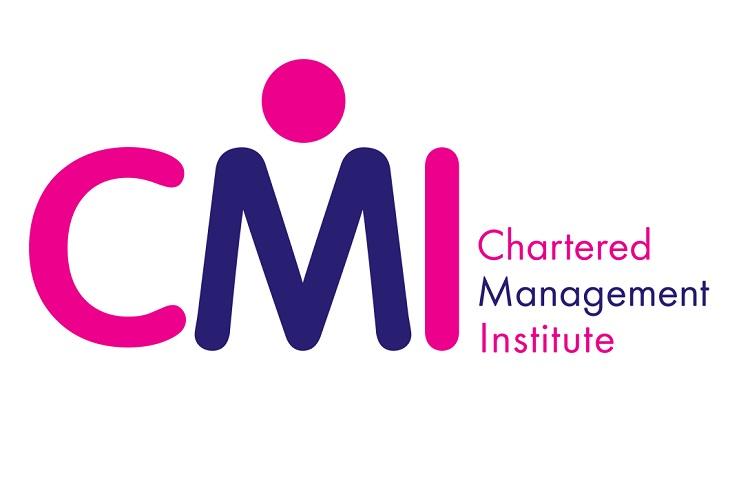A-Level students from disadvantaged backgrounds risk missing out on ‘free’ degree apprenticeships

As 300,000 A-level students anxiously await their results, new research out today (16 Aug) from the Chartered Management Institute highlights a lack of awareness of the alternative routes available to these students, specifically degree apprenticeships. Worryingly, this awareness is even lower for those in the lower socio-economic grade who could benefit from degree apprenticeships the most.
A-Level students from less privileged backgrounds are at risk of missing out on places on the new breed of ‘earn as you learn’ degree apprenticeships, according to new research by the Chartered Management Institute (CMI).
One in four (26 per cent) of the parents from the most highly-educated and highest paid social groups are familiar with degree apprenticeships compared to just one in 10 (10 per cent) of parents from lower socio-economic bands. Previous research from CMI has shown that parents are the most common source of careers advice for young people.
CMI’s survey of 1,004 UK parents of 11-18-year old children reveals that overall parental awareness of degree apprenticeships has grown from 13 per cent in 2016 to 20 per cent in 2017.
However, the gap in awareness between parents from different social groups adds to concerns raised by recent Department for Education data showing a growing gap between the higher educational attainment of school leavers from affluent and less privileged backgrounds.
Degree apprenticeships were launched in 2015, enabling students to work in paid roles while studying for a degree in a number of professional fields. Tuition fees are paid by employers via the new Apprenticeship Levy.
According to government estimates, a degree apprentice could earn up to £150,000 more over the course of their career than other graduates. With the colossal amount of debt that graduates now amass, this is not a secret our students will thank us for keeping!
 Petra Wilton, CMI’s director of strategy and one of the architects of the Chartered Manager Degree Apprenticeship, says:
Petra Wilton, CMI’s director of strategy and one of the architects of the Chartered Manager Degree Apprenticeship, says:
Degree apprenticeships are now at risk of becoming the preserve of the privileged. Parents are the biggest influence on their children’s career decisions, so a lack of parental knowledge will deprive promising students from all backgrounds of places on degree apprenticeships. We’re now in danger of higher apprenticeships quickly transforming from being perceived as an alternative route into employment for the less able, to being a highly attractive option out of reach to all but the elite. Schools and employers need to work with parents to raise awareness, challenge perceptions and help all young people to consider this new route to a degree and employment.
Chartered Manager Degree Apprenticeship was launched in 2015 and already has more than 500 enrolled students from across all backgrounds. The Trailblazer degree-level apprenticeship was developed by a group of more than 30 leading employers, including Serco, Nestle and Barclays, and supported by CMI. Universities UK has tipped Chartered Manager Degree Apprenticeship to become the most subscribed of the new breed of degree-level apprenticeships created under the Government’s Trailblazer scheme.
Lady Cobham, director-general of The 5% club, an organisation dedicated to encouraging employers to offer apprenticeships, said:
This excellent research demonstrates how important good careers advice is for young people. Apprenticeships provide a huge range of qualifications and career opportunities. Students are missing out on the chance to enter the world of work, get qualified and be paid at the same time. This lack of knowledge is detrimental to developing the skills we need to meet the UK’s current shortage and make our economy successful.
CMI’s survey of parents also revealed that for those in the know, seven in 10 (69 per cent) believe that degree apprenticeships represent better value for money than the traditional university route.
When asked if they would consider taking a degree apprenticeship if they were 18 again, four in five (83 per cent) agreed they would. Nearly nine in 10 (87 per cent) believe a qualification from a professional body would make a student more employable when their child finishes their degree.
Wilton adds:
For too many A-Level students about to leave school, the prospect of huge student debt means that traditional university routes are no longer an option. The new Chartered Manager Degree Apprenticeship gives young people a way to earn as they learn, sidestep tuition fees, and to gain both a degree and professional qualification – and then land a job at the end of their studies. When aware of this option, parents clearly support this route, so we need to ensure that no school leaver misses out regardless of their background.
About CMI: The Chartered Management Institute (CMI) is the only chartered professional body for management and leaderships, dedicated to improving managers’ skills and growing the number of qualified managers.
Our professional management qualifications span GCSE to PhD equivalents, including the unique Chartered Manager award, which increases earning potential and improves workplace performance. We have been registered as an apprentice assessment organisation by the Skills Funding Agency.
We provide employers and individual managers with access to the latest management thinking and with practical online support that helps them to embrace change, create high-performing teams and keep ahead of the curve.
With a member community of more than 140,000 managers and leaders, we promote high standards of ethical practice through our Professional Code of Conduct, and help managers to build their expertise through online networks, regional events and mentoring opportunities.
For more information on Chartered Manager Degree Apprenticeship, click here











Responses